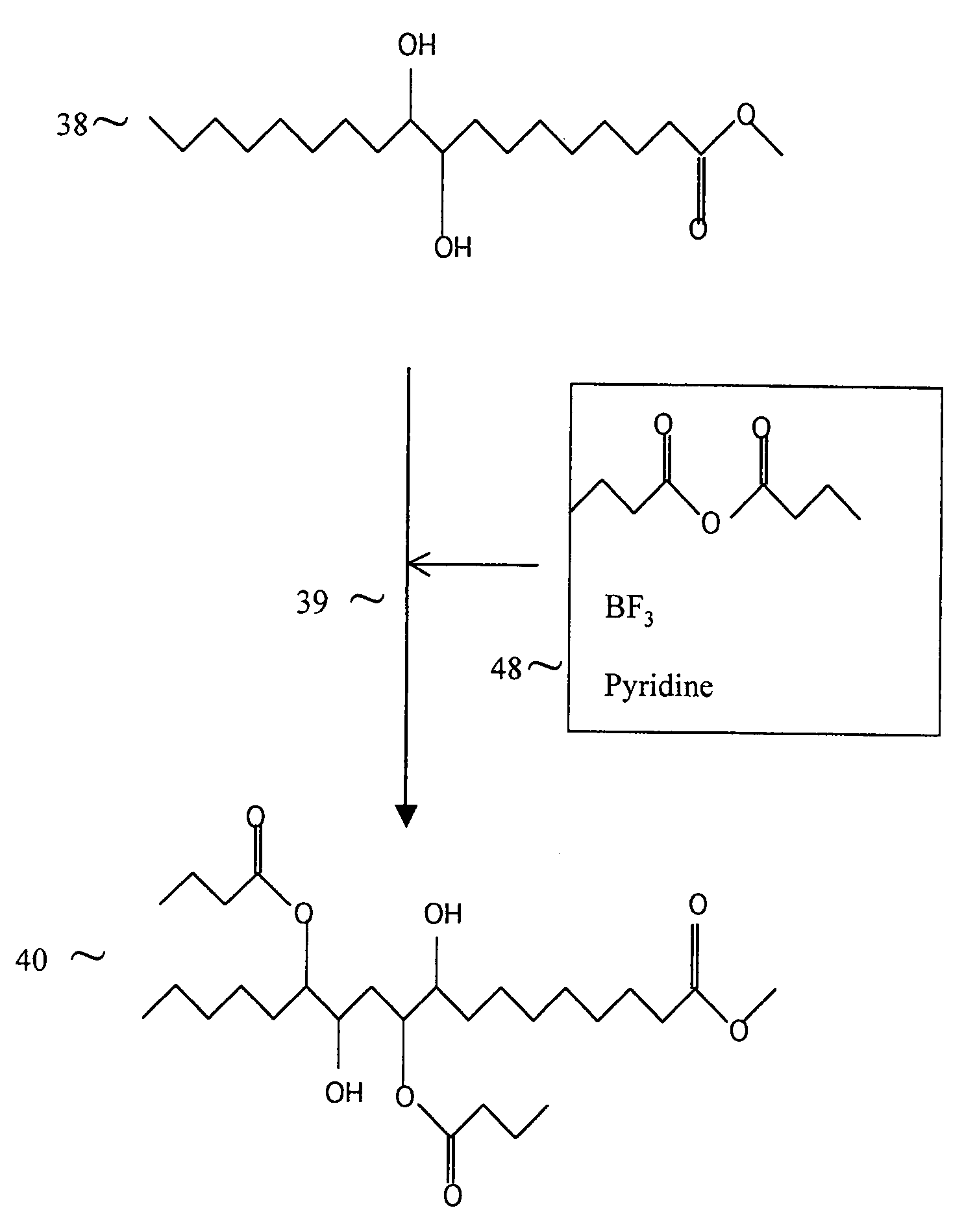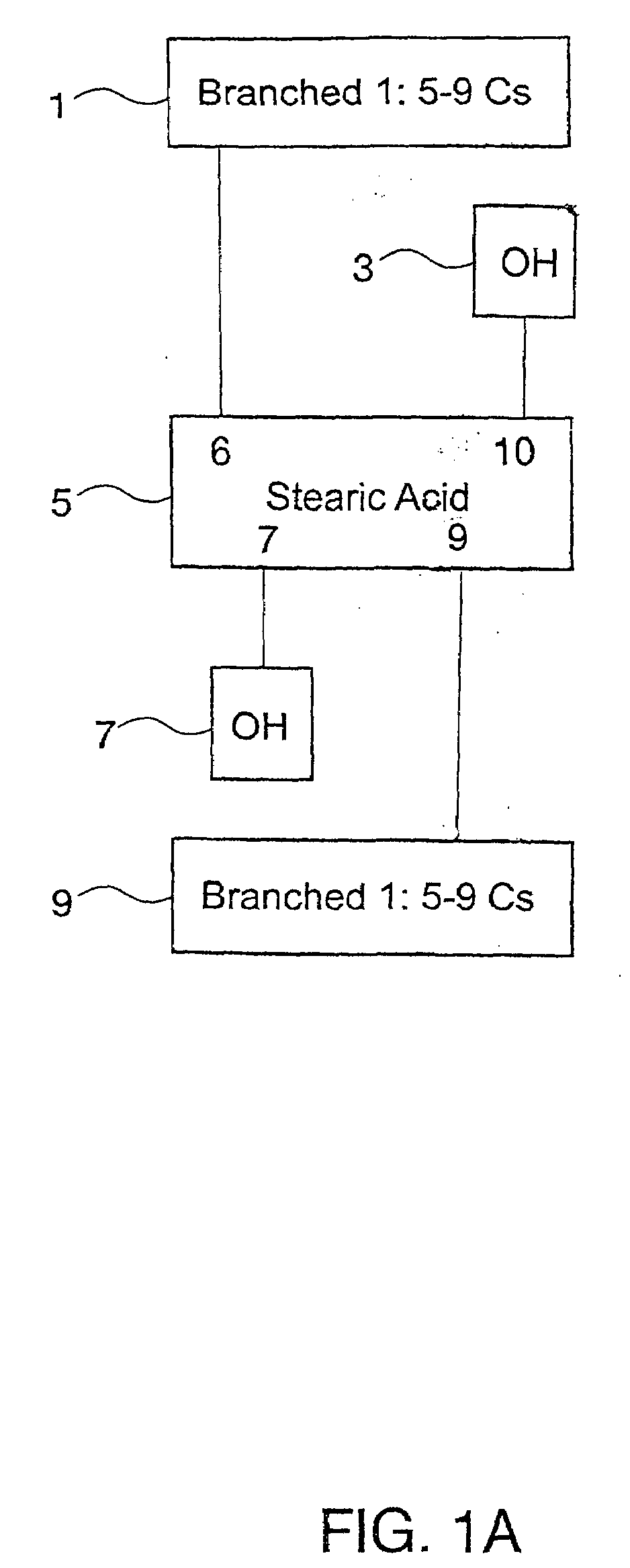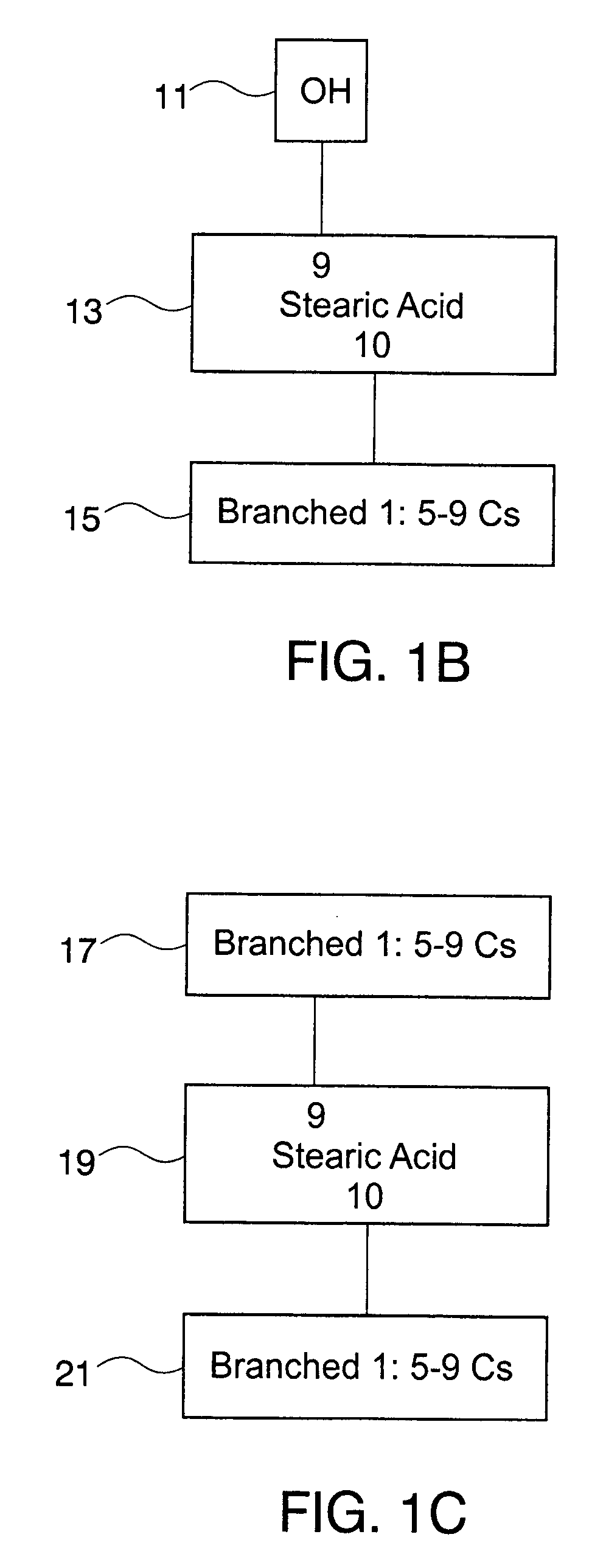Synthesizing and compounding molecules from and with plant oils to improve low temperature behavior of plant oils as fuels, oils and lubricants
- Summary
- Abstract
- Description
- Claims
- Application Information
AI Technical Summary
Benefits of technology
Problems solved by technology
Method used
Image
Examples
Embodiment Construction
[0038]The class of materials that when compounded with saturated acids such as palmitic acid, or forms of palmitic acid used in the application contemplated hereby such as methyl palmitate, are illustrated by the three polar molecules and the one anhydrous form. One skilled in the art of organic chemical synthesis is capable of taking the information provided and not only producing these four materials, but also understanding how logical extension through processes well known to the average practitioner in the art, by substituting other materials in the synthesizing and manufacturing processes, can be used to obtain other final products that may differ from these four molecules yet still fall within the teaching of the present invention as to the structure of the resulting materials, that reproduce the favorable results, such as of improving low temperature behavior, as is claimed herein.
[0039]The feed stocks in the examples shown begin with a plant oil based, long carbon chain fatt...
PUM
| Property | Measurement | Unit |
|---|---|---|
| Fraction | aaaaa | aaaaa |
| Fraction | aaaaa | aaaaa |
| Fraction | aaaaa | aaaaa |
Abstract
Description
Claims
Application Information
 Login to View More
Login to View More - R&D
- Intellectual Property
- Life Sciences
- Materials
- Tech Scout
- Unparalleled Data Quality
- Higher Quality Content
- 60% Fewer Hallucinations
Browse by: Latest US Patents, China's latest patents, Technical Efficacy Thesaurus, Application Domain, Technology Topic, Popular Technical Reports.
© 2025 PatSnap. All rights reserved.Legal|Privacy policy|Modern Slavery Act Transparency Statement|Sitemap|About US| Contact US: help@patsnap.com



